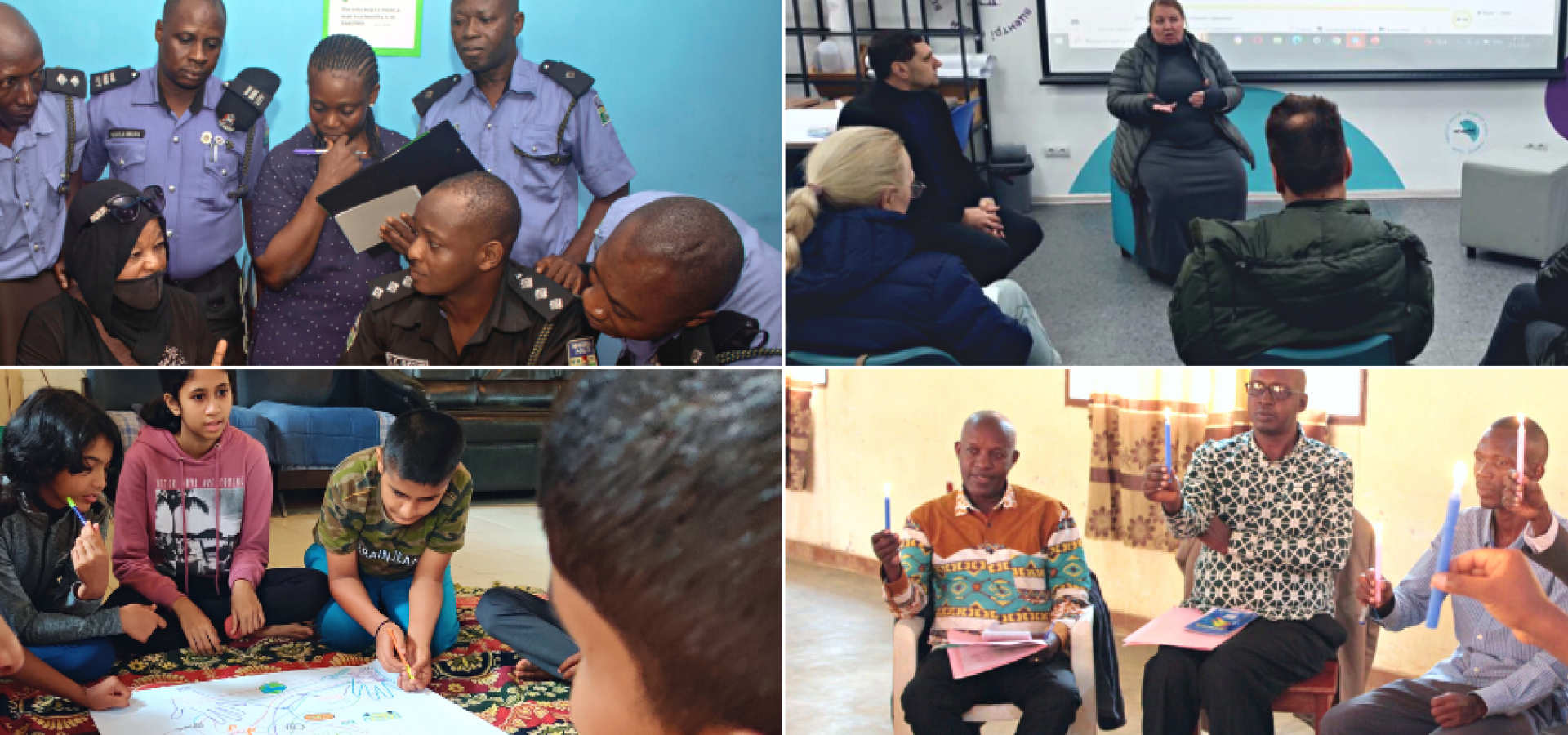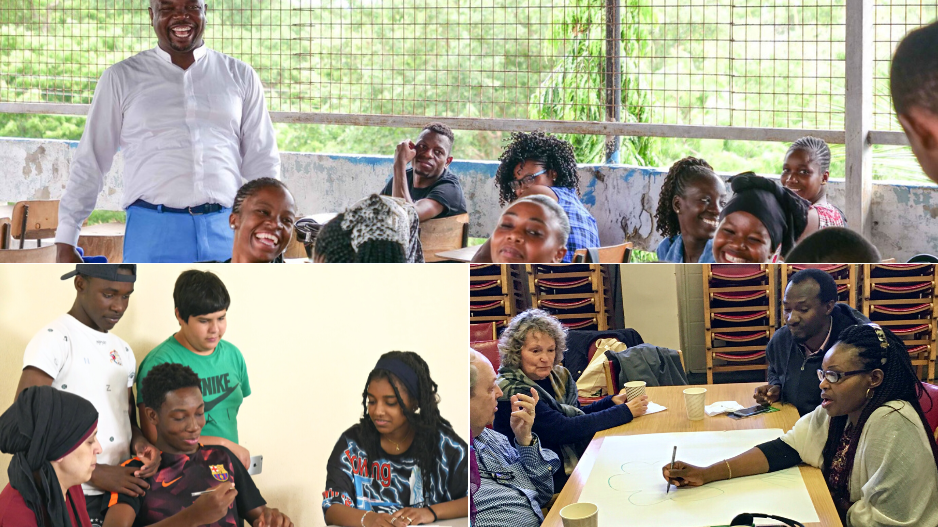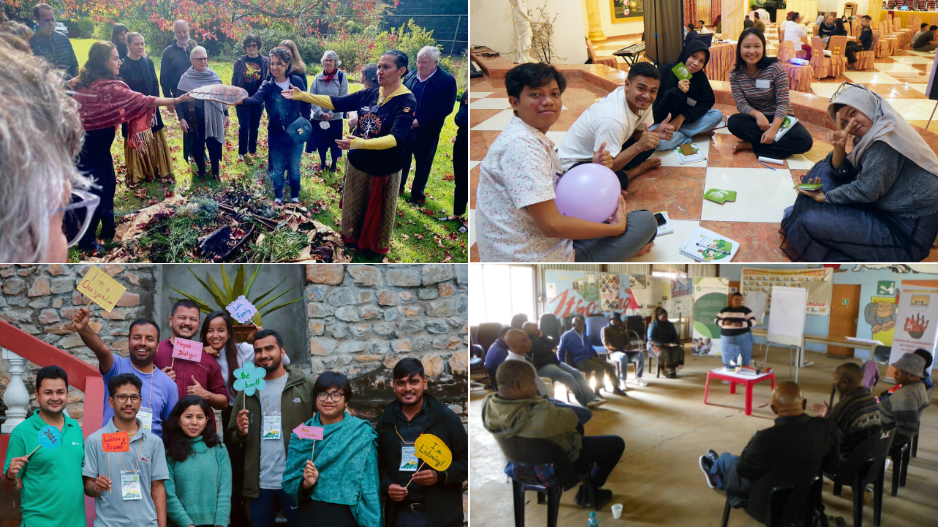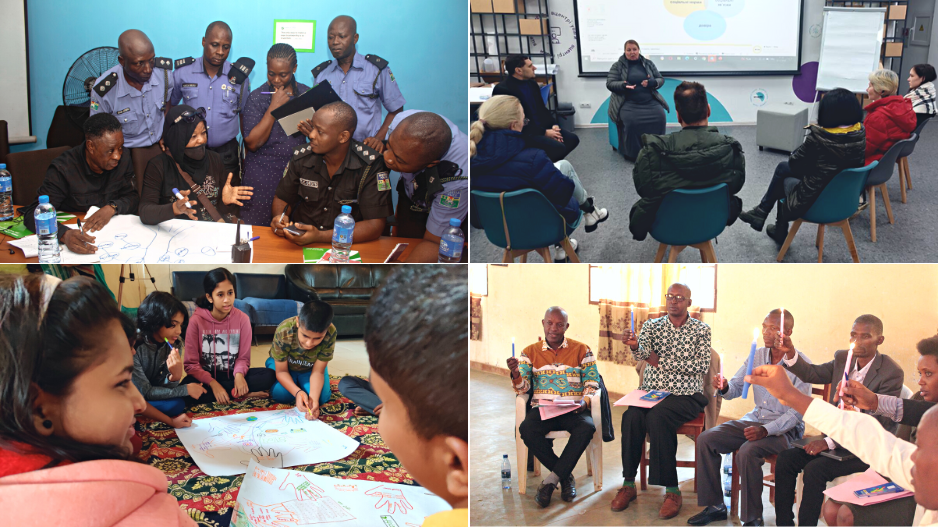The highlight of the third year was the recognition of the TBP’s work by being awarded the UN’s Intercultural Innovation Award (IAA). Following a competitive process with over 1,100 applications from 120 countries, ten finalists, including the TBP, were awarded the IIA. The award included a year of capacity-building support from BMW and Accenture and a $20,000 grant. Talia Smith received the award on behalf of the TBP at a ceremony in Dubai in December 2021.
The third year saw the program continue to scale up and grow by taking on another four new IofC teams. Burundi, India, Nigeria, and Ukraine (which, soon after their launch, was paused due to the war).
Burundi addresses the historical wounds created through ethnopolitical divisions and restoring community trust. Deep personal stories are shared by participants in dialogues in a quest to develop understanding between Hutu and Tutsi ethnic groups. One recent dialogue gathered twenty participants whose family members were victims of the killings in Burundi from independence to 2015. Participants shared their stories of surviving the violence and how, as a community, they can move forward.
The team in India works to close the cultural gap between rural and urban youth by developing mutual understanding, tolerance, and connections. They work in partnership with schools and, for example, organise residential trustbuilding training for rural and urban teachers, in-person and online student meetings, and outreach activities. Evaluation data shows that perceptions and stereotypes were positively changed, understanding increased, and friendships were made.
In response to the #EndSARS campaign in Nigeria, the team are building trust between the police and the community. They delivered trustbuilding workshops for 50 police in preparation for an event that brought together 210 community members, leaders, and police in an honest conversation about how the police can serve the community in a better way. Over 500 beneficiaries were already reached directly through the trustbuilding work. Team member Israel used to live a life of crime and now works with the TBP to engage the police and his old community (notorious for gangs). He shared his story of change to encourage community members to have a dialogue, facilitated by the TBP, with the police.
After a five-month pause, our courageous team in Ukraine are up and running again. The team have re-strategised the original focus of the TBP to building trust between Internally Displaced People (IDPs), local authorities and host communities - a huge need across the country. They are working in three target communities, delivering monthly trustbuilding sessions.
Visibility, recognition, and awareness of IofC and the TBP have accelerated this year. For example, the TBP was featured in an article in British Vogue (online and in print reaching over 2.7 million readers in print alone), and TBP Nigeria, Indonesia and Nepal secured press coverage in national media.



